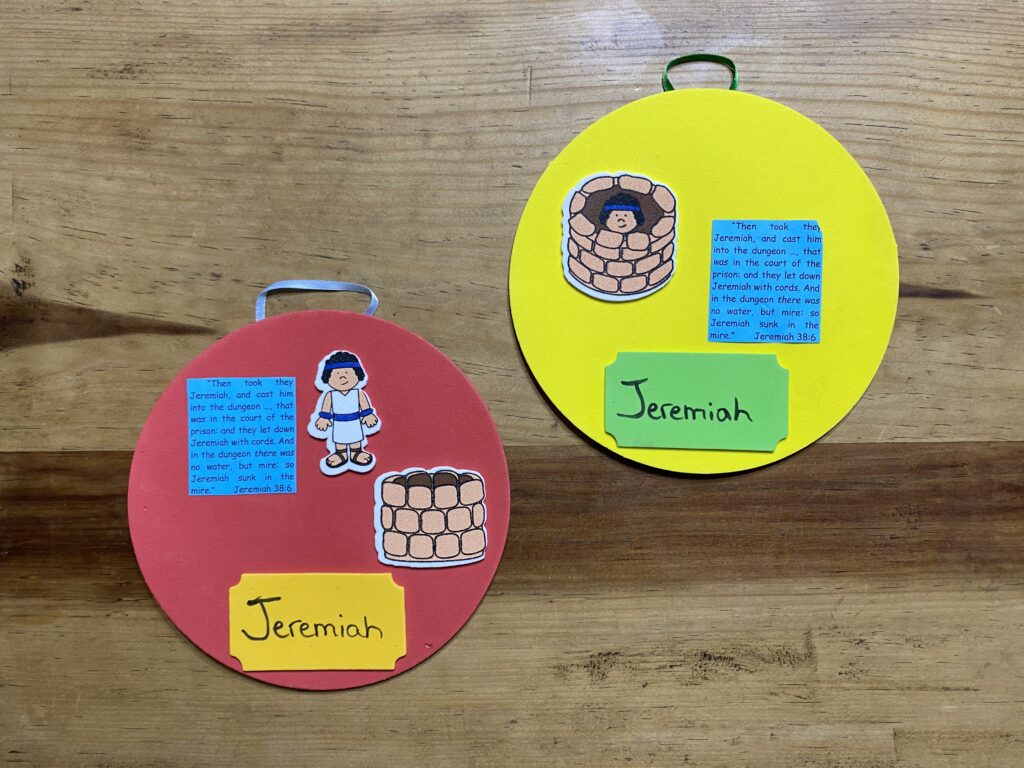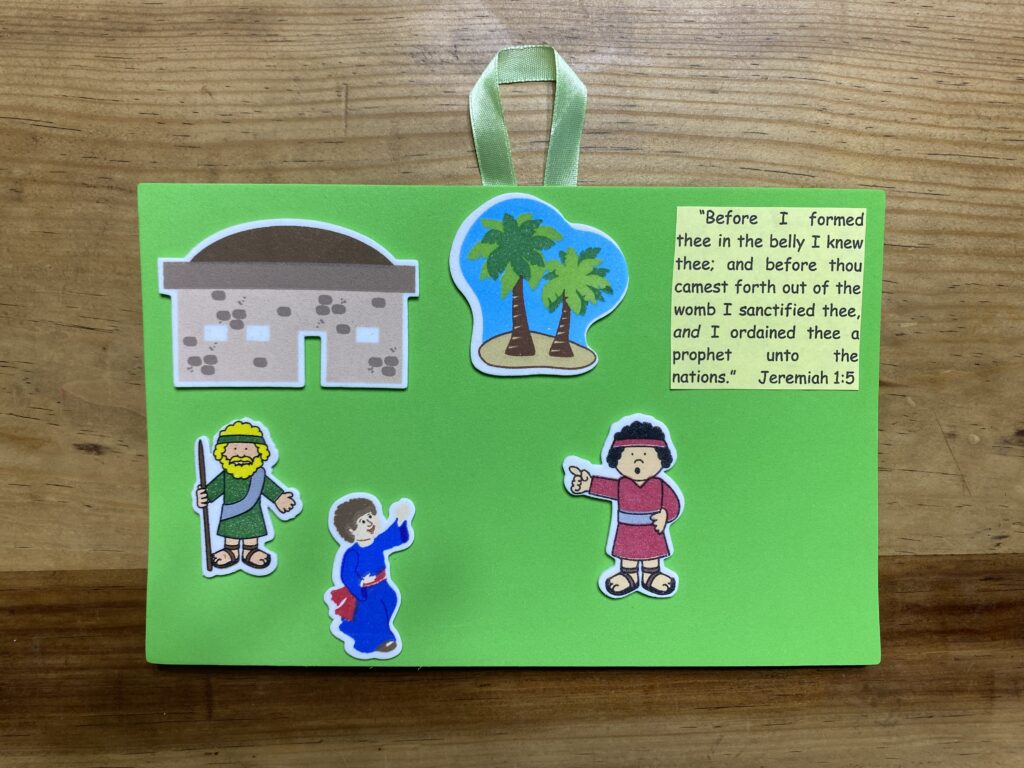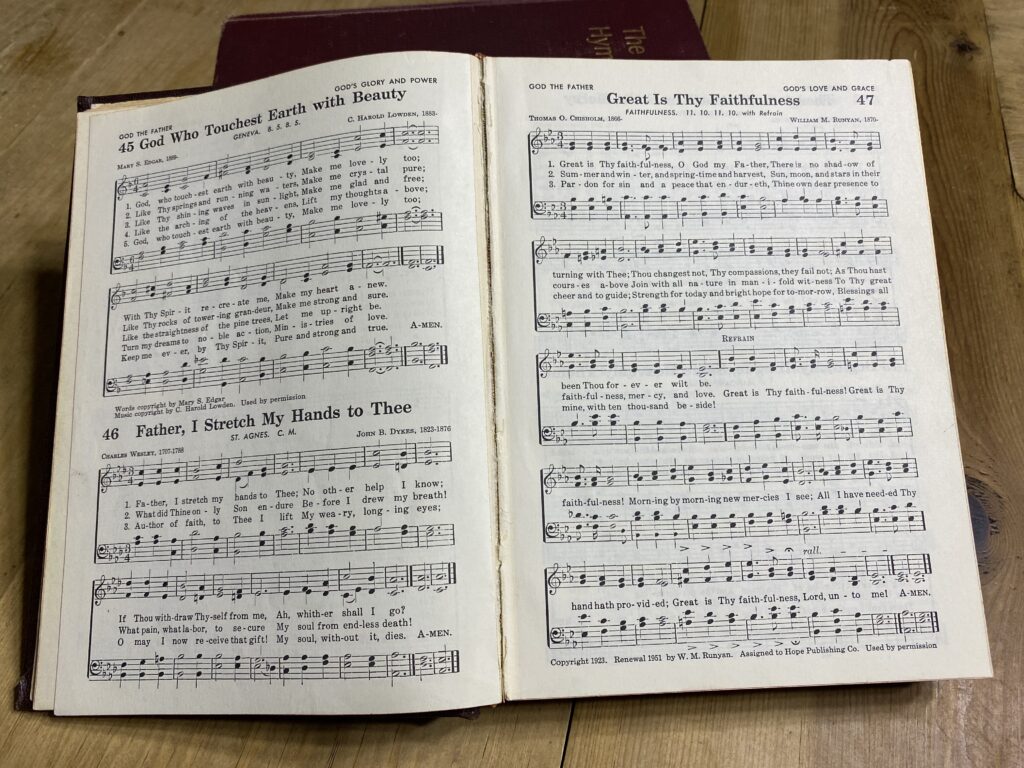
“For I know the thoughts that I think toward you, saith the LORD, thoughts of peace, and not of evil, to give you an expected end.”
Jeremiah 29:11
Jeremiah always delivered the messages God gave him faithfully, even when it was difficult for him. He chose to obey God, calling Judah to repent and return to God. Jeremiah had little, if any, hope of God’s people truly repenting and returning to God, yet he faithfully obeyed. What courage! As you read the book of Jeremiah, you will understand that the people did not repent, so God allowed the enemy to take them captive and destroy Jerusalem. Jeremiah witnessed the destruction of his beloved city, and his people carried captive to a foreign land.
God gave Jeremiah a message to send to the people who were taken captive before God allowed the Babylonians to besiege Jerusalem. They were words of encouragement that are read by many even today.
Read some of the letter that Jeremiah sent to the Jews of the first captivity. “Now these are the words of the letter that Jeremiah the prophet sent from Jerusalem unto the residue of the elders which were carried away captives, and to the priests, and to the prophets, and to all the people whom Nebuchadnezzar had carried away captive from Jerusalem to Babylon” (Jeremiah 29:1). We are to understand that this is the first carrying away of captives by Babylon (see Jeremiah 29:2). Read the message. “4. Thus saith the LORD of hosts, the God of Israel, unto all that are carried away captives, whom I have caused to be carried away from Jerusalem unto Babylon; 5. Build ye houses, and dwell in them; and plant gardens, and eat the fruit of them; 6. Take ye wives, and beget sons and daughters; and take wives for your sons, and give your daughters to husbands, that they may bear sons and daughters; that ye may be increased there, and not diminished. 7. And seek the peace of the city whither I have caused you to be carried away captives, and pray unto the LORD for it: for in the peace thereof shall ye have peace” (Jeremiah 29:4-7). First, he wanted them to understand they would be in Babylon for a while, so they needed to take up residence. They were to build houses, plant gardens, get married, and have families. Most importantly, they were to pray unto the Lord. They were not to listen to the false prophets who were speaking among them. “8. For thus saith the LORD of hosts, the God of Israel; Let not your prophets and your diviners, that be in the midst of you, deceive you, neither hearken to your dreams which ye cause to be dreamed. 9. For they prophesy falsely unto you in my name: I have not sent them, saith the LORD” (Jeremiah 29:8-9). The Israelites were to understand that they would be there for seventy years. After that seventy years, their discipline would end, and God would allow them to return back to the land God had promised them. “10. For thus saith the LORD, That after seventy years be accomplished at Babylon I will visit you, and perform my good word toward you, in causing you to return to this place. 11. For I know the thoughts that I think toward you, saith the LORD, thoughts of peace, and not of evil, to give you an expected end. 12. Then shall ye call upon me, and ye shall go and pray unto me, and I will hearken unto you. 13. And ye shall seek me, and find me, when ye shall search for me with all your heart. 14. And I will be found of you, saith the LORD: and I will turn away your captivity, and I will gather you from all the nations, and from all the places whither I have driven you, saith the LORD; and I will bring you again into the place whence I caused you to be carried away captive” (Jeremiah 29:10-14). God loved His people and did not want them to have troubles, but His people needed to learn that they had to seek God with all of their hearts – and then they would find him. God had a plan and a reason for that captivity. During their time in Babylon, God’s people finally learned to seek the Lord.
The following verse is quoted often today: “For I know the thoughts that I think toward you, saith the LORD, thoughts of peace, and not of evil, to give you an expected end” (Jeremiah 29:11). This is a very encouraging verse. However, I would like you to consider something. In order for God’s people to come to this place in their relationship with God, they had to be taken captive from their homes because they had refused to repent of their sin and turn to God. It was only in their captivity, when they finally repented, that God was able to give them these encouraging words. “12. Take heed, brethren, lest there be in any of you an evil heart of unbelief, in departing from the living God. 13. But exhort one another daily, while it is called To day; lest any of you be hardened through the deceitfulness of sin” (Hebrews 3:12-13). It would be good for us to repent and turn from sin much sooner than the Israelites did. It would prevent much heartache. “10. For with the heart man believeth unto righteousness; and with the mouth confession is made unto salvation. 11. For the scripture saith, Whosoever believeth on him shall not be ashamed. 12. For there is no difference between the Jew and the Greek: for the same Lord over all is rich unto all that call upon him. 13. For whosoever shall call upon the name of the Lord shall be saved” (Romans 10:10-13). Time is short. Repent and believe today!
Have you chosen the things of this world instead of repenting and trusting in Jesus?
Trust in Jesus: How to be saved










